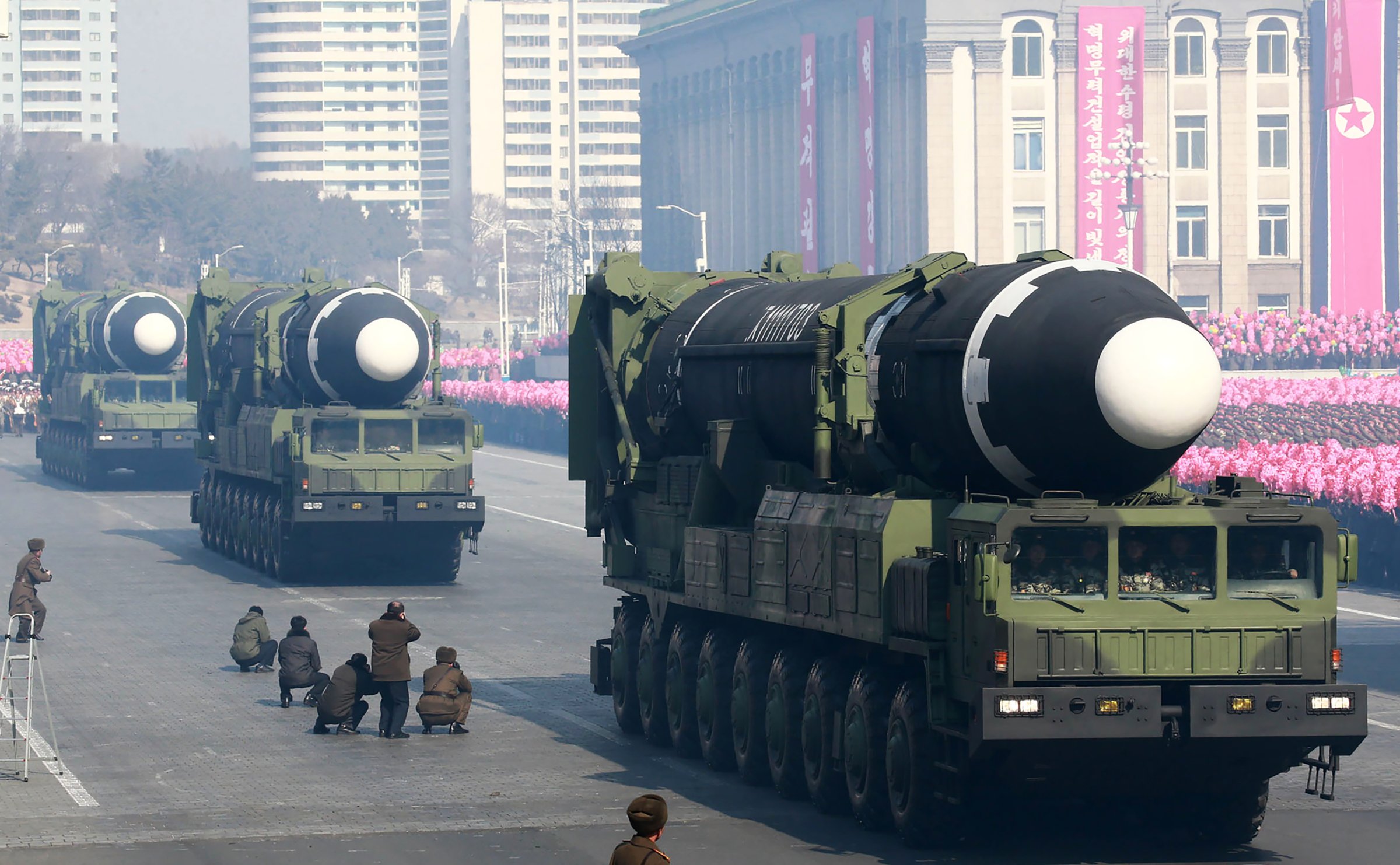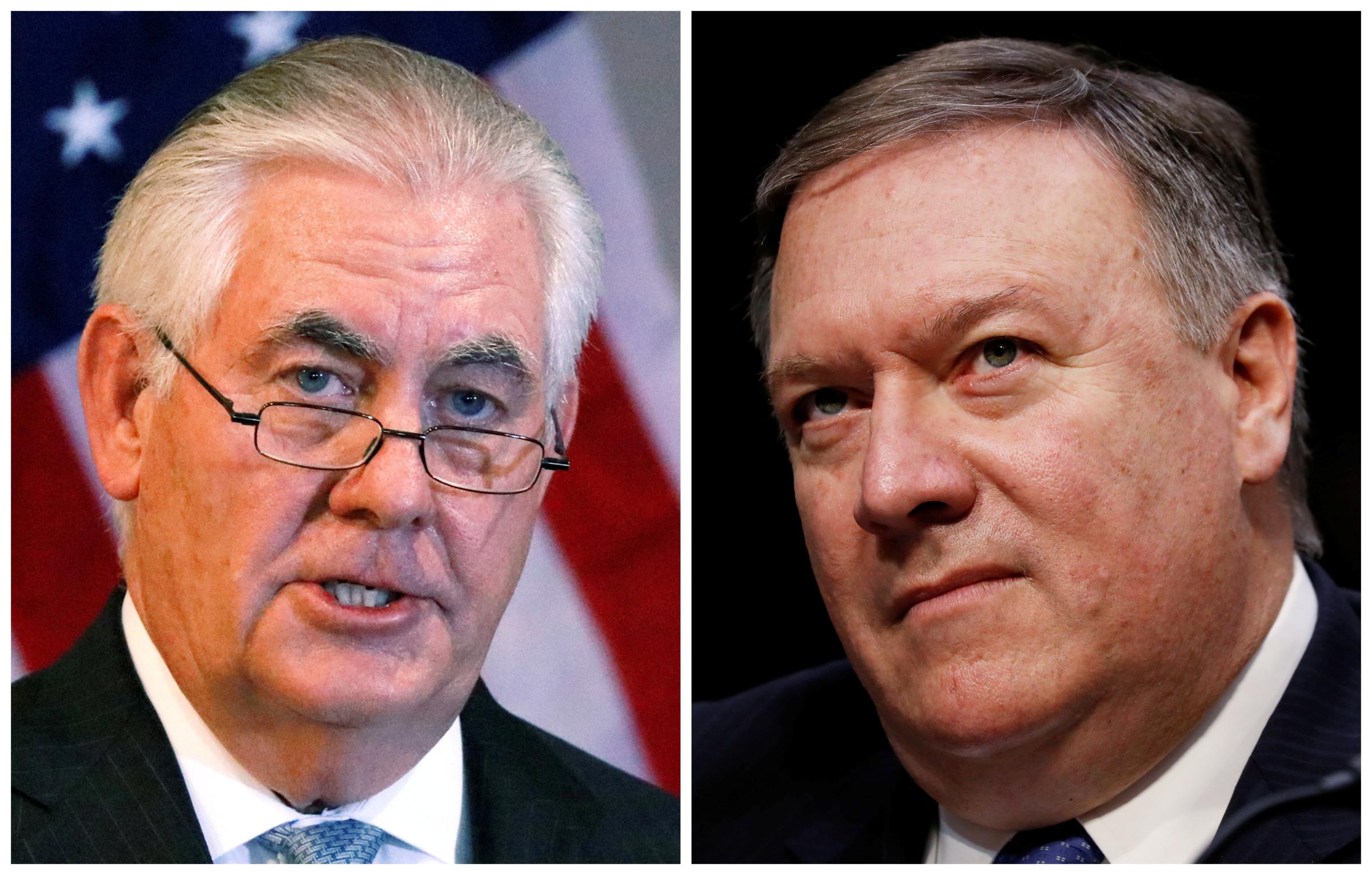
Donald Trump’s decision on Tuesday to replace Secretary of State Rex Tillerson with CIA chief Mike Pompeo caught the world by surprise, and injected even more uncertainty into May’s historic summit between the U.S. President and North Korean leader Kim Kong Un.
Pompeo has been one of the most hawkish voices on North Korea’s escalating missile and nuclear tests and is unlikely to inspire confidence in a regime wary of American capriciousness regarding international pacts. In July, he suggested that regime change would be a positive development welcomed by the North Korean people and has refused to condemn preemptive military action.
“It would be a great thing to denuclearize the peninsula, to get those weapons off of that, but the thing that is most dangerous about it is the character who holds the control over them today,” Pompeo told a panel at the Aspen Security Forum. “I am hopeful we will find a way to separate that regime from this system.”
This view differs pointedly from Tillerson, who in April insisted, “We do not seek a collapse of the regime,” and was so keen to reach a negotiated settlement that in December offered a meeting without preconditions: “Let’s just meet — we can talk about the weather if you want,” he said.
Those dovish overtures ultimately helped sideline Tillerson in the formation of the administration’s North Korean policy, further evidenced by his unfortunate statement, “We’re a long ways from negotiations,” just hours before Trump accepted Kim’s summit invitation.
Read More: Why President Trump Fired Rex Tillerson
The victory of North Korea hawks in the administration was presaged by the fate of veteran diplomat Victor Cha, who was dropped from consideration for U.S. ambassador supposedly over his staunch criticism of the preemptive strike option. It also likely stoked South Korean President Moon Jae-in’s frantic reengagement with the Kim regime. Rumors of Tillerson’s replacement by Pompeo were being discussed by South Korea’s intelligence services in January, according to documents seen by TIME.
Now the fear for liberals are the growing rumors that mustachioed diplomat John Bolton — the ultra-hawkish former U.S. ambassador to the U.N., who has voiced support for preemptive war with both North Korea and Iran — may soon replace current National Security Adviser H.R. McMaster.
This may explain Moon’s urgency: In a matter of weeks he agreed to march under a united Korea flag at the PyeongChang Winter Olympics, dispatched envoys to Pyongyang to meet Kim, agreed his own face-to-face talks in April, and brokered the Trump summit.
“I think President Moon was concerned both by the potential for a North Korean provocation or attack during the Olympics as well as potential for a U.S. preventive attack, so that he eagerly grasped at the olive branch offered during Kim Jong Un’s annual New Year’s Day speech,” says Bruce Klingner, a Northeast Asia expert at the conservative think-tank The Heritage Foundation.
It is not just Pompeo’s views on North Korea that are problematic, though. The new Secretary of State has also been a strident critic of the Iran nuclear deal, saying that he would like to “roll back” on the agreement, while comparing the Tehran government to ISIS.

In May, Trump, who has also criticized the Iran agreement, has to decide whether to waive the nuclear-related U.S. sanctions on Tehran to abide by that deal, right at the moment when the summit with Kim is due to take place.
“Many would argue that [renouncing the Iran deal] would completely undermine his opportunity to reach some sort of diplomatic outcome with Kim Jong Un,” says Daryle Kimball, executive director of the Washington-based Arms Control Association. “[Kim] would see an American president arriving at the summit table having just rejected an agreement negotiated in good faith by law that Iran is complying with.”
The need to build trust is already a fraught prospect given Washington’s history of broken promises. U.S. President George W. Bush labeled North Korea part of his “axis of evil” in his first State of the Union Address in January 2002, despite the Agreed Framework for denuclearization still officially being in place. (It broke down the following year.) Then there are the cases of Iraqi dictator Saddam Hussein and Libyan dictator Muammar Gaddafi, who were both toppled with American backing despite assurances they would be left alone after abandoning their pursuit of nuclear weapons.
And so a fresh reversal augments the already considerable risk of non-compliance or other shenanigans from Pyongyang to undermine any agreement. The danger today, of course, is that North Korea already has the technology to hit the entire continental U.S. with its latest Hwasong-15 nuclear armed ballistic missiles.
“If they conduct three or four more Hwasong-15 intercontinental ballistic missiles tests, they will almost certainly perfect the ability to deliver a nuclear payload across the Pacific Ocean to the United States,” adds Kimball. “At that point they can begin building these missiles in quantities and the problem becomes much more difficult to solve.”
More Must-Reads from TIME
- Where Trump 2.0 Will Differ From 1.0
- How Elon Musk Became a Kingmaker
- The Power—And Limits—of Peer Support
- The 100 Must-Read Books of 2024
- Column: If Optimism Feels Ridiculous Now, Try Hope
- The Future of Climate Action Is Trade Policy
- FX’s Say Nothing Is the Must-Watch Political Thriller of 2024
- Merle Bombardieri Is Helping People Make the Baby Decision
Write to Charlie Campbell / Beijing at charlie.campbell@time.com